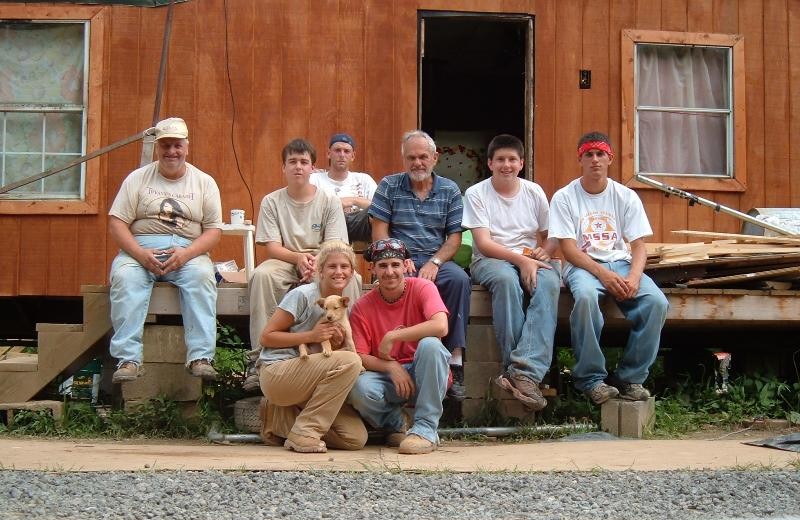What does it take to create a world where people work well together; where true leadership reigns; where things get done with a smile? It takes servanthood.
In “The 21 Indispensable Qualities of a Leader,” author John Maxwell identifies Quality #19 as servanthood. The book presents five characteristics of a leader who embodies the quality of servant hood:
hood:
- Puts others ahead of own agenda
- Possesses the confidence to lead
- Initiates service to others
- Is not position-conscious
- Serves out of love (caring).
We can certainly look to the business world for leaders who exhibit these characteristics, and hopefully we will find many.
However, I believe that we need only look around our own communities to find excellent examples of servanthood in action.
♦♦♦♦♦♦♦♦♦♦♦♦♦
“Mom, have you seen my cleats?”
 If you are the parent of a child who plays sports, you have probably been asked five minutes before leaving for a game or practice if you have seen a ball, a pair of cleats, a missing sock, or any number of items that, for some reason our children believe we intentionally hide from them as part of some global parental conspiracy. At some point, you have also likely been asked to volunteer to help with some aspect of running your child’s team, and hopefully you have said “yes” at least once.
If you are the parent of a child who plays sports, you have probably been asked five minutes before leaving for a game or practice if you have seen a ball, a pair of cleats, a missing sock, or any number of items that, for some reason our children believe we intentionally hide from them as part of some global parental conspiracy. At some point, you have also likely been asked to volunteer to help with some aspect of running your child’s team, and hopefully you have said “yes” at least once.
Because my daughters have grown up playing soccer, I am most familiar with how important parent volunteers are for a soccer team to run well. Parents give up their precious spare time for the benefit of their child’s team and they typically do not get much (if any) recognition. But recognition is not what motivates them to serve.
They volunteer to serve out of love for their children and, based purely on my observations over the past decade of being immersed in the world of girls’ soccer, I have noticed that it is most often the Mothers who step forward to fill these roles.
Whether they sign up to serve as the team’s manager, the treasurer, work at fundraisers, or rearrange their busy schedules to shuttle their children to and from practices, games and tournaments, I believe that Mothers who selflessly give up their own time for their child’s sport are excellent examples of servanthood as John Maxwell defines it. We should thank them often for all that they do.
♦♦♦♦♦♦♦♦♦♦♦♦♦
Rubber hits the Road
For the past two years, my oldest daughter has volunteered with the Appalachia Service Project (ASP). Both summers she has traveled in a passenger van full of supplies and tools from suburban Maryland to Central Appalachia with a group of high school students led by several adults from my parents’ church. For a week, the kids and adults work together in teams on various projects to help families in need.
 Typical projects range from building a wheelchair ramp for a handicapped person to constructing an entire addition for a couple who are raising their grandchildren and have no space in their existing home. Most projects involve performing miscellaneous household repairs for people who are not physically able to do the work themselves.
Typical projects range from building a wheelchair ramp for a handicapped person to constructing an entire addition for a couple who are raising their grandchildren and have no space in their existing home. Most projects involve performing miscellaneous household repairs for people who are not physically able to do the work themselves.
The  volunteers set up “base camp” at a local school or community center where they divide the space into male and female quarters. A typical day involves breakfast, gathering supplies, traveling to the project site to work in the summer heat for 5 or 6 hours, returning to “base camp” to shower and eat dinner, a few hours of social time and then “lights out” to rest up for the following day…and the kids seem to enjoy every minute of their time together.
volunteers set up “base camp” at a local school or community center where they divide the space into male and female quarters. A typical day involves breakfast, gathering supplies, traveling to the project site to work in the summer heat for 5 or 6 hours, returning to “base camp” to shower and eat dinner, a few hours of social time and then “lights out” to rest up for the following day…and the kids seem to enjoy every minute of their time together.
 This year my daughter was particularly moved by the work her team performed for an elderly woman who’s husband had passed away and she could no longer keep up with the exterior maintenance of her home. By the end of the week, the team had repaired some broken porch railings, dug a drainage trench, installed pipes to carry water away from her foundation and started constructing a retaining wall that would be completed by the group due to arrive the following week. The woman was incredibly appreciative of their work and continually thanked every member of the group.
This year my daughter was particularly moved by the work her team performed for an elderly woman who’s husband had passed away and she could no longer keep up with the exterior maintenance of her home. By the end of the week, the team had repaired some broken porch railings, dug a drainage trench, installed pipes to carry water away from her foundation and started constructing a retaining wall that would be completed by the group due to arrive the following week. The woman was incredibly appreciative of their work and continually thanked every member of the group.
These teenagers, and the adults that work with them, are also excellent examples of servanthood in action.
 They volunteer to give up a week of their summer to drive 350 miles from home, sleep on the floor and work in the hot sun all day to help people they don’t know. They are not paid for this work, they do it out of a sense of caring and a sincere desire to make a difference by placing the needs of others ahead of their own. I have no doubt that these teenagers and others like them will someday become future servant leaders in the business world.
They volunteer to give up a week of their summer to drive 350 miles from home, sleep on the floor and work in the hot sun all day to help people they don’t know. They are not paid for this work, they do it out of a sense of caring and a sincere desire to make a difference by placing the needs of others ahead of their own. I have no doubt that these teenagers and others like them will someday become future servant leaders in the business world.
As a leader, do you exhibit the 5 characteristics of servanthood? Do you put the interests of your team ahead of your own? Are you confident enough as a leader to allow yourself to empower your employees without worrying that they will look better than you? Are you focused more on helping your team members succeed than you are on your own success? What other examples of day-to-day servanthood can you think of?
——————–
Ken Jones, AIA, LEED AP is a Vice President at Grimm + Parker Architects in MD
A service-focused leader, Ken helps create meaningful architecture + client success
Email | LinkedIn | Web | My Blog


